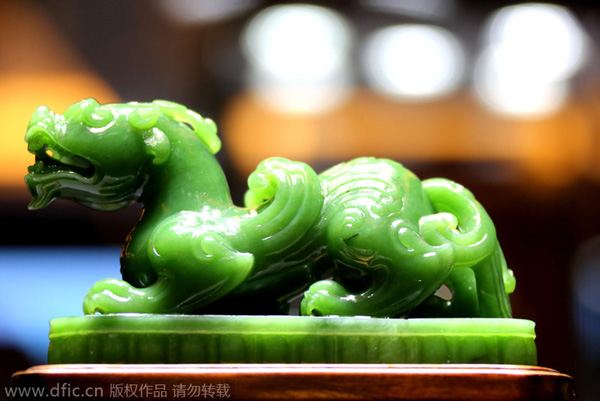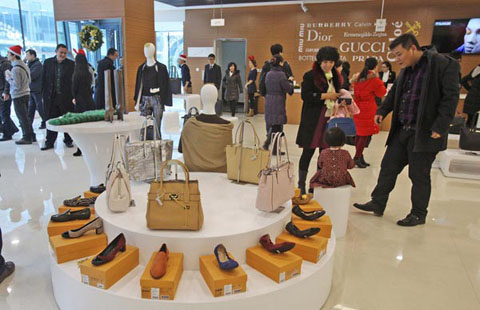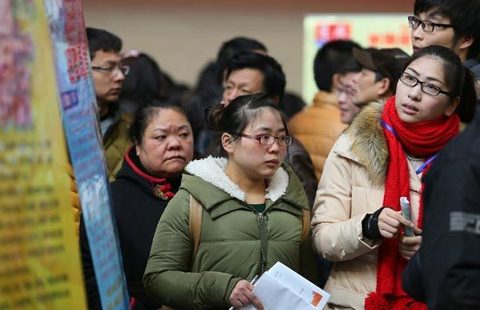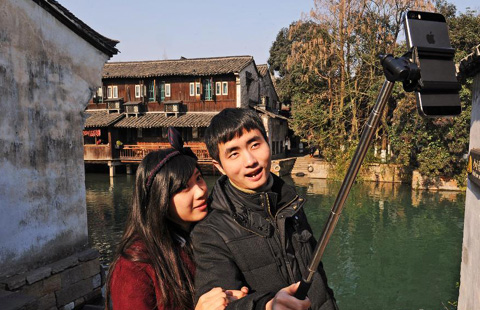Bengbu's jade industry on rocky road
By Zhu Lixin (China Daily) Updated: 2015-02-11 07:55
 |
|
A jade artifact displays at an exhibition in Hefei, Anhui province, in October. [Photo/IC] |
Officials from the Bengbu municipal government estimate that about 60,000 of the city's 1 million urban population work in the industry, which has an annual gross output value of more than 2 billion yuan ($320 million).
"The exact numbers are very hard to determine because people won't show outsiders everything, but the jade industry is certainly one of Bengbu's most important economic sectors," said Xun Yiran, deputy head of the municipal government's publicity department.
Although Bengbu lacks raw materials, the city's craftsmen are famous for their proficiency and high standards. The raw materials mainly come from famous mining areas in West China, such as the Xinjiang Uygur autonomous region and Qinghai province, and neighboring countries, including Myanmar and Russia.
While the shops on well-maintained streets are Bengbu's focal point, most of the trading and carving takes place in shabby areas such as Xingfucun, also know as the "village in the city".
Yang Guilong ran a jade business in Xingfucun ("Happiness Village") in the city's Longzihu district for more than 20 years, but last year he moved his shop to a better-maintained, prosperous district reserved exclusively for the jade trade. He's kept his workshop in the village, though, and the carving and processing of artifacts for the shop still are done there.
The 50-something bought the three-story building in 2011 when ground was broken to signal the start of the construction process, and the area now has about 300 jade shops.
However, building work began on an even larger business development, the China Bengbu Jade Culture & Creativity Industrial Park, in 2012. The project, which was conducted in three phases and required total investment of about 1 billion yuan, is expected to have space for nearly 2,000 jade businesses when work is completed in April.
Miao Zengling, chairman of the park's developer, Bengbu Miao's Investment Ltd, said he'd originally planned to build a steel market on the site, but visits to Bengbu and surveys of the jade industry prompted a change of plan.
After spending more than 5 million yuan to buy his shop, Yang has little collateral left, but he still has a large number of jade pieces. "During the peak period, around 2010, I had about 20 workers. Now I have less than half that number, because the business no longer needs so many people." he said, adding that the "current (situation) is probably the hardest time the industry has seen".
- China to show its IT power in CeBIT 2015
- Patent dispute threatens Xiaomi's India future
- Joint 5G standards to be set
- Chinese premier sees innovation countering slowdown
- Interest rate cut more likely
- Cheaper scheme launched for imported cars
- China's outstanding social financing up 14.3% in 2014
- Qualcommgets $975m antitrust fine

















